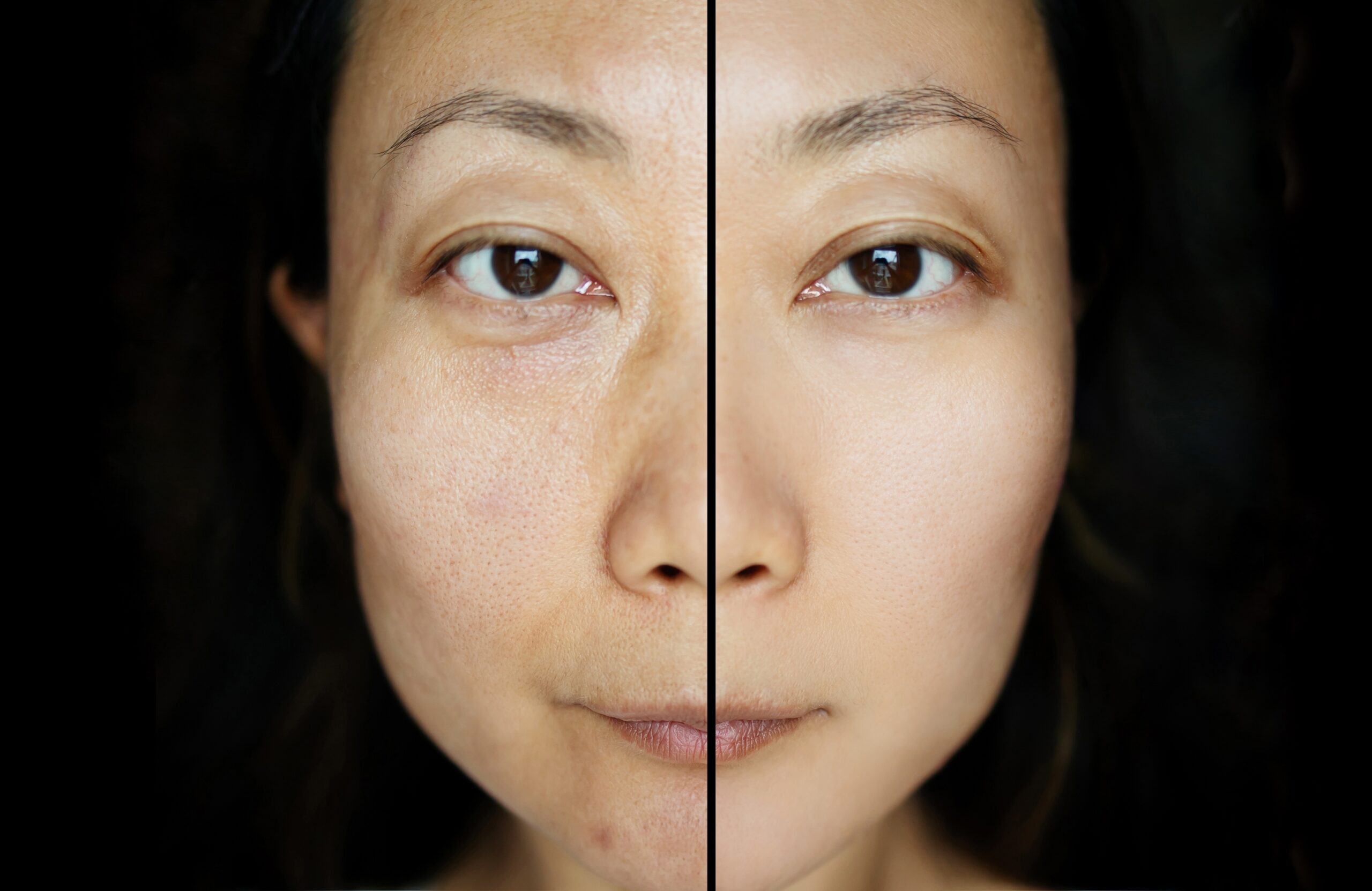
Medical Grade Chemical Peels in Bridgewater NJ
Medical grade chemical peels use specialized solutions to exfoliate damaged skin layers, revealing smoother, brighter skin underneath. These treatments effectively address fine lines, sun damage, acne scars, and uneven skin tone for a refreshed complexion.
👨⚕️ Double Board Certified in Dermatology and Mohs Surgery
🎓 Fellowship Trained in Mohs Surgery
What is a Medical Grade Chemical Peel?
A chemical peel is a cosmetic procedure used to improve the appearance of the skin on the face, neck, or hands. During the procedure, a chemical solution is applied to the skin, which causes it to exfoliate and eventually peel off. The new, regenerated skin is usually smoother and less wrinkled than the old skin.
Chemical peels can be used to treat a variety of skin concerns, including:
1. Fine lines and wrinkles
2. Sun damage
3. Uneven skin tone and texture
4. Acne and acne scars
5. Age spots and freckles
6. Melasma (patches of darker skin)
There are different types of chemical peels available, ranging from superficial peels, which only remove the outer layer of skin, to deeper peels, which penetrate deeper into the skin layers. The type of peel recommended will depend on the individual’s skin type, concerns, and desired outcome. It’s essential to consult with a board certified dermatologist such as Dr. Parth Patel before undergoing a chemical peel to determine the most suitable option and to ensure safety and effectiveness.
What happens during a Medical Grade Chemical Peel?
During a chemical peel, the procedure typically follows these general steps:
1. **Consultation**: Before the procedure, you’ll have a consultation with Dr. Parth Patel to discuss your skin concerns, medical history, and goals for treatment. This is also an opportunity for the provider to assess your skin and determine the appropriate type and strength of peel for your skin type and concerns.
2. **Preparation**: Prior to the peel, your skin will be cleansed to remove any makeup, oils, or debris. Some providers may also apply a pre-peel solution to degrease the skin and enhance the penetration of the peel solution.
3. **Application of Peel Solution**: The chemical peel solution is then applied to the skin. The type and strength of the solution will depend on the specific peel being performed and your skin’s needs. The solution may contain various acids such as Glycolic Acid, Mandelic Acid, Phenol, Salicylic Acid, or Trichloroacetic Acid (TCA).
4. **Monitoring**: During the peel application, our team will monitor your skin’s reaction to ensure that the peel is progressing appropriately and not causing any adverse reactions.
5. **Neutralization (if necessary)**: Some peels require neutralization with a solution to stop the chemical reaction and prevent over exfoliation. Not all peels require neutralization, as some are self-neutralizing.
6. **Post-Peel Care**: After the peel solution has been on the skin for the appropriate amount of time, it will either be neutralized or left on the skin to self-neutralize. Our team will then apply a soothing or calming product to the skin, such as a moisturizer or soothing mask.
7. **Follow-Up**: Depending on the type of peel and your skin’s response, you may require multiple peel sessions spaced out over several weeks to achieve optimal results. Our team will schedule follow-up appointments to monitor your progress and adjust the treatment plan as needed.
It’s essential to follow our team’s instructions carefully both during and after the peel to ensure the best possible outcome and minimize the risk of complications.
Schedule your consultation today for healthier, brighter, skin!
Ready to Transform Your Skin with Medical Grade Chemical Peels?
Don't let acne scars and uneven skin texture hold you back from feeling confident. Our medical-grade chemical peels offer professional-strength treatments that can dramatically improve skin texture, reduce scarring, and reveal smoother, more radiant skin.


